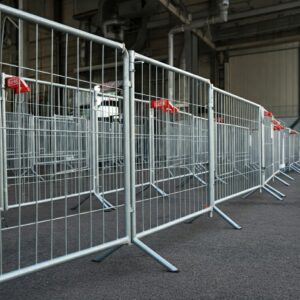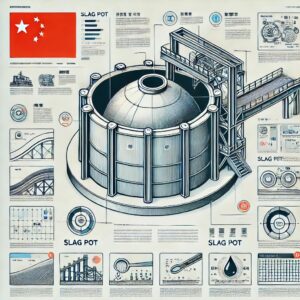Got an email the other day enclosing a link to a Globe and Mail article, Vancouver miner says China trying to steal Xinjiang gold mine, and stating the following:
I literally chuckled when I read this. Only for the reason that it pretty much checked off every point you have warned about. They certainly would have benefited from spending a little time reading your blog.
I laughed too, and then I got all nostalgic because the article reminded me of China’s good old days, when I (and so many others) naively believed that if only we could get foreign companies to do things correctly from day one in China, all would be right with the world. Now, we frequently write about how China has become so grim for foreigners and foreign companies that you had better do everything right AND keep your head down AND your mouth shut. See, e.g., A Former Expat on China: Grim and The China Thrill Is Gone.
Back in the old days, many foreign companies were convinced that doing things right in China was only for suckers and those without guanxi –a word we have not even used on here since this post from way back in 2010: China Guanxi: You Ain’t Got It. Back in those days we would get tons of calls from foreign companies desperately needing our China lawyers to dig them out of really deep legal holes of their own making. I often say that ten years ago, 50% of my law firm’s China revenues were earned by helping companies in trouble and the other 50% was earned helping clients avoid trouble in the first place. These days, it is more like 25% helping companies get out of trouble and 75% helping clients avoid trouble — and were it not for PPE matters, the ratio would be more like 90 to 10.
But enough dwelling on the past, let’s talk about the present and this Globe and Mail article that reads like a primer on how not to do business in China, which also means it also works quite well as a primer on how to do business in China.
The article is about a Canadian gold mining company that claims to have “employed about 150 workers from different ethnic backgrounds” and paid “equitable compensation” at its Qi2 gold mine in Hatu, a mining district in northwest Xinjiang. (For more on Xinjiang, see Xinjiang. Ten-Foot Pole.) According to the company, Dynasty, “all protocols and culture practices were followed including special holidays for religious practices” at its mine, which is near “re-education centres for political indoctrination and skills training.” This appears to have been the company’s first mistake — believing it could go within inches of a raging fire and not get burned. China is risky for any foreign company (particularly any Canadian company), and being in Xinjiang multiplies them. See How to Survive an Increasingly Difficult China and The Top 14 China Wild Cards/Future Risks.
But not only did Dynasty go into Xinjiang, it did so via a joint venture. Joint ventures are inherently risky everywhere in the world and even more so in China. I wrote on this more than a decade ago for the Wall Street Journal in Joint Venture Jeopardy and again less than a year ago in China Joint Ventures: The Long Version. This was Dynasty’s mistake number two.
But not only did Dynasty do a joint venture in the riskiest region in one of the riskiest countries in the world, but it chose the riskiest possible entity as its joint venture partner: the Chinese government itself. China lawyers often talk about the 90-10 rule on Chinese law and how foreign companies that do deals with private Chinese companies (the 90 percent) can expect to be fairly well protected by Chinese courts because if there is a dispute between the foreign company and the private Chinese company, the courts will (if not bribed) be pretty neutral. But if you do a deal with a Chinese government entity (the 10 percent), you should expect the courts to be biased against you. This rule also says that if your deal involves rubber duckies or a similar industry about which the Chinese government does not much care, you will be within the 90 percent portion and you can expect to be treated fairly well by the Chinese courts and the government. But if your deal involves something like cutting edge semiconductors or mining — industries about which the Chinese government cares deeply, your odds of being treated fairly plunge.
So to summarize, Dynasty went into a risky country (China) into that country’s riskiest region (Xinjiang) and did one of the riskiest sort of deals (a joint venture) with the riskiest of partners (the Chinese government itself) and in one of the riskiest of all industries (mining).
So it should not take a genius to assume this investment became a total disaster, and that is exactly what happened.
Per the Globe and Mail article, Dynasty “holds a 70-per-cent interest [in the Joint Venture], while the remaining 30 per cent is held by Western Region Gold Co. Ltd., a wholly owned subsidiary of the state-owned enterprise” and it “is currently locked in a legal battle over ownership of the project with its state-owned Chinese partners. The mine has an estimated resource of 536,000 ounces of gold worth US$1-billion at current prices.” Dynasty is claiming its minority JV partner (the Chinese government) is “trying to steal the company away . . . with help from Chinese courts.” Which leaves my wondering why they were expecting anything different.
Dynasty asserts that, “They simply took our mine. Our partner is the Chinese government in Xinjiang and so we have been asking for Canadian government help for the last while but we have not got any.” I see this as yet another mistake. First off, if you want the Chinese government not to do something, publicize what you want it to do and let the world know that you will be using another government to pressure it to do it. And second, if you want to guarantee the Chinese government will not cave to another government’s pressure, seek out a government the CCP despises to exert the pressure. See The Huawei Indictments are the New Normal. Per the Globe and Mail, “the Canadian embassy in Beijing dismissed her pleas for help, calling it ‘a commercial dispute.'” No surprise that the Canadian government has no desire to try to risk further discord with China to try to remedy what appears to be self-inflicted commercial wounds.
The Globe and Mail says the “dispute began in 2016 when Western Gold [the minority Chinese government joint venture partner] listed the Hatu gold mine in an initial public offering on the Shanghai exchange without Dynasty’s consent” and without acknowledging “Dynasty’s majority ownership in the prospectus.” Not surprisingly, Dynasty did not receive any of the proceeds from the public offering.
This makes me doubt the quality of the contracts between Dynasty and its JV partner and/or the existence of proper company registrations. Did the joint venture agreements make clear Dynasty’s ownership interests? Did any agreement between Dynasty and its JV partner make clear that the joint venture owned the Hatu gold mine, not Dynasty’s joint venture partner or some other entity? I suspect none did and I wonder whether Dynasty used any lawyers for these transactions, and if it did, whether those lawyers were qualified to handle such a deal. I say this because the article states the following:
Dynasty initiated legal action against Western Gold and its parent company, XNF, for compensation and asked the courts to restore the joint venture. Ms. Chong [of Dynasty] said the local court in Xinjiang ruled against Dynasty, saying Western Gold and XNF were not obligated to form a joint enterprise under the memorandum of understanding they signed.
Why would the court have based its decision on a “memorandum of understanding” and not on the joint venture agreement or whatever other contracts existed between Dynasty and Western Gold? I don’t get it, and I wonder whether there were in fact no full-fledged written contracts/agreements. Did Dynasty rely entirely on the MOU? If so, WOW. See China LOI and MOU: Don’t Let Them Happen to You.
Dynasty is saying the mine is “worth US$1-billion and we didn’t get a cent out of it … there is no legal system [in China].” It also says, it is “the only company in Canada, perhaps in the world, operating in Xinjiang in our situation.” Perhaps there is a reason for this.
But still there is more. . . .
“Dynasty executives plan to travel to China to pursue other unnamed alternatives once the COVID-19 travel restrictions are lifted.” I truly hope nobody from Dynasty ever goes to China because the risks of whomever goes to China being held hostage are astronomical. See China Hostage Situations: What You Need to Know.
I would ordinarily conclude a post such as this by listing out the lessons to be learned, but I feel they are so obvious that my doing so is unnecessary.

























